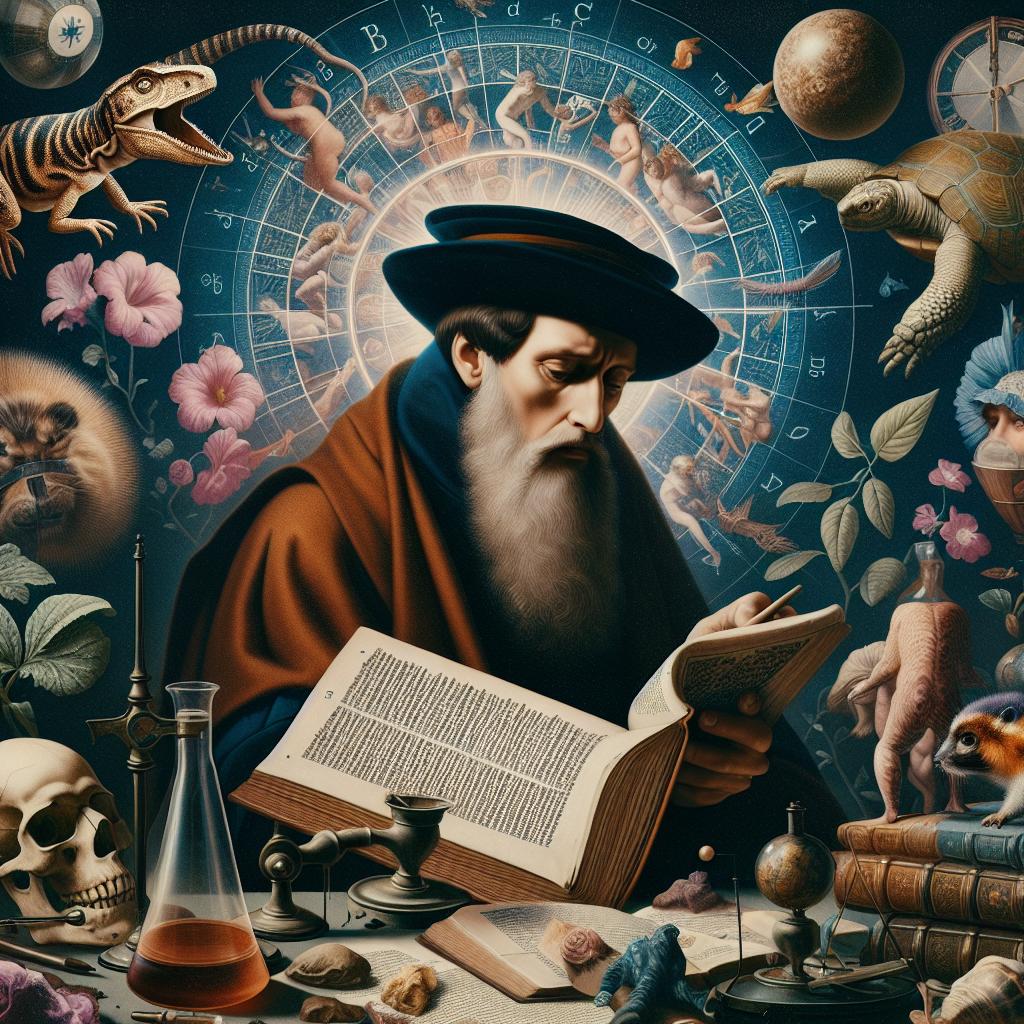
Luther on Evolution: Unveiling God's Design for Creation
Published: 07 July 2024
Luther on Evolution
Introduction
Martin Luther, a key figure in the Protestant Reformation, held strong views on the topic of evolution and its compatibility with biblical teachings. Luther emphasized the importance of returning to basic scriptural truths and rejected the evolutionary ideas put forth by ancient philosophers such as Lucretius. In this article, we will explore Luther's perspectives on creation, his rejection of evolutionary concepts, and his belief in the divine authority of Scripture.
The Clarity of Scripture
Luther admired the simplicity and clarity with which Moses presented the creation account in Genesis. He criticized commentators and writers who had distorted the clear scriptural narrative of creation. Luther cautioned against following any guide other than Scripture, as he believed there was no safe source of guidance among Hebrews, Latins, or Greeks when it came to understanding creation.
Two Creation Accounts?
Contrary to popular belief, Luther was well aware of the alleged discrepancies and errors in the text of Genesis. He addressed the question of whether there were two conflicting creation accounts in Genesis directly. Luther firmly rejected this notion, asserting that Genesis chapter two simply provided more detailed information about the creation of man and woman. For Luther, these chapters were not religious allegory or myth but rather historical accounts.
The Word as God's Instrument
Luther emphasized that the Word of God was instrumental in the act of creation itself. He believed that toying with or distorting the creation account was equivalent to tampering with Scripture's revelation about Christ. Luther rejected St. Augustine's approach of allegorizing the biblical record of creation, considering it evasive and contradictory to clear meaning. He saw no need for obscure allegories when the light of Scripture was so clear.
Bible and Science
Luther did not view true science as being at odds with Scripture. In fact, he believed that genuine scientific inquiry should complement and support biblical teachings. However, he emphasized that science that contradicted Scripture was false science. Luther's understanding of the scientific method was ahead of his time, as he advocated for complete and repeatable observation and falsifiability.
Theistic Evolution
Luther strongly rejected the idea of theistic evolution, which was known among the educated of his time. He disagreed with the notion that God created everything in the beginning and then allowed nature to operate independently. Luther believed that this perspective contradicted both scripture and experience. He also emphasized that neither man's creation nor his preservation could be attributed to chance or natural processes alone.
Creation and Christ
For Luther, the issue of creation was intimately connected to the Gospel and the person of Christ. He saw creation as an integral part of biblical Christology and salvation. Luther firmly believed that faith in Christ was paramount, and any impairment or deviation from that faith could lead to damnation. Discussing creation without acknowledging Christ's involvement was, in Luther's view, a subtle way of undermining grace itself.
Why This Matters
Understanding Luther's views on evolution is important for Christians today because it challenges the prevailing narrative that evolutionary ideas are compatible with a biblical worldview. Luther's rejection of evolutionary concepts serves as a reminder that there has long been a strong tradition within Christianity that upholds a literal interpretation of the creation account in Genesis.
Think About It
Reflecting on Luther's stance on evolution prompts us to consider our own beliefs about creation and how they align with Scripture. It encourages us to critically examine scientific claims and theories in light of biblical teachings. Furthermore, Luther's emphasis on the importance of faith in Christ reminds us of the centrality of the Gospel message and its connection to the biblical account of creation.
In conclusion, Martin Luther held firm convictions regarding evolution and its compatibility with biblical teachings. He rejected evolutionary ideas put forth by ancient philosophers and theologians, emphasizing the importance of returning to basic scriptural truths. Luther saw the creation account as historical and rejected the notion of two conflicting creation accounts. He believed that the Word of God was instrumental in the act of creation and stressed that true science should complement Scripture. Luther firmly rejected theistic evolution, considering it contrary to both scripture and experience. For Luther, creation was intimately connected to the person and work of Christ, and any distortion of the creation account undermined the Gospel message. Understanding Luther's perspectives on evolution challenges contemporary notions and encourages a thoughtful engagement with creationist ideas within a Christian framework.
